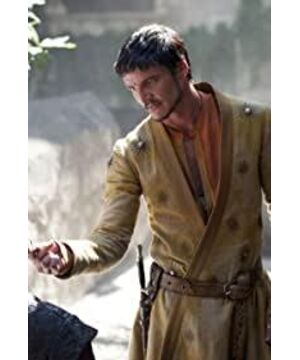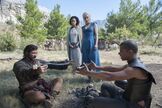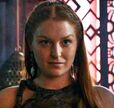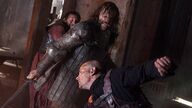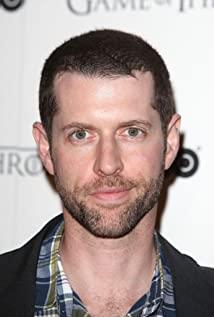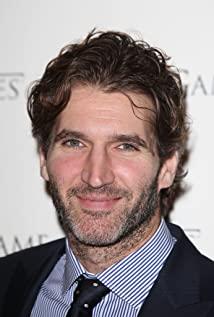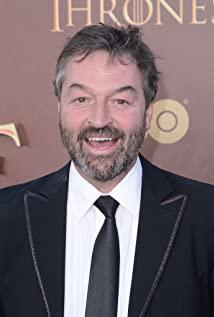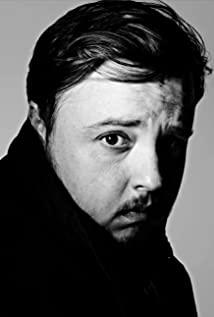Everything in square brackets below is my addition.
- Ruo stars]
"Game of Thrones" George • R • R • Martin: "Rolling Stone" magazine interview gleaning
more about the authors of "Game of Thrones" early life, by the impact and Jon Snow descent •
English original link: http://www.rollingstone.com/movies/news/george-rr-martin-outtakes-from-the-rolling-stone-interview-20140428
By Mikal Gilmore 1:30 2014 Nian 4 28 afternoon
in In a 10-hour interview, Rolling Stone writer Mikal Gillmore discusses a wide range of topic. While most of the interviews were published in Rolling Stone, a handful of Martin's responses remained on the cutting room floor. Here are some excerpts for the readers.
Childhood in Bayonne, NJ:
"As I said, we were kids growing up in public housing; In public housing built, so I knew from a very young age that my family was poor. I didn't want to play the victim role, which was too bad. They were actually very respectable families who just happened to be poor. Sometimes At school I would hear, 'Kids living in public housing are not as good as normal kids.' But I never felt like an outcast. Most of my friends were also public housing kids, at least when I was a kid so."
“Looking back now, ah, what a fun childhood I had! I grew up in the suburbs, and it was much more fun than kids in the city. We had our public housing, with warehouses and factories next to it, and a working dock across the street. . This is our paradise. We frolic in the warehouse in the industrial area of the town, and the security guards drive us around. There are also high iron ladders next to the warehouse, extending to the top of the warehouse, like a huge four-story warehouse, Or the ladder on the side of the water tower. We climbed up and down the iron ladder to the roof and looked down at the view below. To many people, it's a different world, but I don't think so. For me Said, the world is boring and familiar.”
About Martin’s parents:
“My mother and I are very close and warm. I’m not good at sports, but I have a strong interest in watching sports. So my father and I could talk about Johnny • Unitas [note: NFL Hall of Fame legend quarterback]. That's how sports connected my dad to me. My dad was a gambler too. I think it cost him a fortune in college because I went to Northwestern University. Northwestern University in Evanston (Illinois) is one of the Big Ten colleges, but not sports. During my college days, my dad felt obligated to support my alma mater, so he always I bet on Northwestern University and lost a lot of money (laughs)."
On the influence of early life:
"I first got into comics when I was a kid. I read all kinds of comics. Superman and Batman were popular at the time, but I also read Archie comics, Harvey comics, Casper the Friendly Ghost, Sugar and Spice, Baby Huey and more. When Marvel's Fantastic Four and Spider-Man, I started writing letters to comics magazines. All of these comics magazines had readers' letters columns, and they would select some of the readers' letters to publish. At that time, the readers' letters would be printed along with the readers' complete letters. Address. Other manga fans saw my address and wrote to me. Then I started reading some manga fanzines. Then I thought, 'Hey, I can write something for these fanzines too. They're so bad, At least I didn't write as bad as they did.' I did it. Then my article got published."
My writing experience took shape in my high school English class. Once, the teacher gave us an assignment to rewrite the ending of Edgar Allan Poe's novel The Pit and the Pendulum. The ending of the original book is actually not very well written: the protagonist is trapped, and the pendulum is going lower and lower, about to split the protagonist in half. Suddenly, a trumpet sounded, indicating that the Inquisition had fallen into the hands of its enemies. The good guys arrive and save the protagonist. I rewrote a horrific ending: no one came to save the protagonist, and the pendulum split him in half. I depicted bloody scenes and the excruciating pain of the protagonist. The mouse came out and bit him, bit by bit, bit by bit, gnawed away his eyes, all the way into his chest. If I had to change teachers, I might be freaked out and send me to the school psychiatrist. But luckily, the teacher who assigned the homework liked the article I wrote and let me read it aloud in front of the class. I seemed to be the hero of the class that day. I went to a boys' school and the boys liked mice and liked mice to eat innards, blood and intestines. All day I was like a quarterback who just won a major. Everyone loves the horror ending I wrote. (laughs) So in high school I decided I wanted to try to be a writer. "
"When I first started writing, I wrote for manga fanzines and other places. My biggest inspiration at the time was the villains. I read some manga fanzines and the stories were written in half literacy, which sucks. I Saying to myself, even at 10, I can do better than them. The idea motivates me. In fact, I do do better. When my stories get published in these little magazines, I get people compliments. I've never been very confident. I'm shy. In school I'm very good, always on the honor roll, getting good grades. But there are a lot of things I'm not good at, like sports as I said. I'm both Can't hit or catch a baseball. I can't run fast, I can't jump high, and I have absolutely no talent for sports. Those shortcomings will wear you down and take a toll on your confidence."
On Robert Heinlein and Star Trek:
"I read the books of Robert Heinlein. The early Heinlein - who later became more of a statist - was convinced that sooner or later we would destroy ourselves with the atomic bomb unless we formed a world Government, stick together. Looking back at the science fiction I read growing up, the self-evident assumption of that era was everywhere. As we head into outer space, we'll meet other alien races. Some of them Races may be friendly, some may be evil. Evil monsters want to conquer us, and we will hit them head-on, defeat them, or cooperate with them. But we will still behave the way Earthlings do, and we will do what we do Humans. If you grew up reading these books, you would call yourself an Earthling, a human being; not an American or a Californian.
" "Star Trek came along and sorted out these ideas. In Star Trek, there were Russians, Asians, black women with African names working together on the bridge. All of these were revolutionary at the time, but not Gene Roddenberry. : The invention of the screenwriter of "Star Trek". In the eyes of Heinlein lovers and cosmopolitans, there is only one self-evident assumption, and that is - as human beings, we have two endings : Or destroy ourselves with the atomic bomb, or overcome the difficulties we face. Science fiction of that era has been subtly selling such ideas. It is almost an idealized way of exploring our future.”
"Unfortunately, I don't think we're headed in that direction. I'm seeing more and more divisions between people. In these divisions and before God, people give in. It's a very scary place. We're not in the On the road to becoming an "Earthman". An idealistic kid graduated from high school with a mind full of belief in truth, justice and the American Way, and his youth was filled with the values of these great superheroes. By the time he graduated college, It's definitely not so idealistic."
Found JRR Tolkien:
"Quartana is one of the magazines I'd like to write about, mostly about swords, magic and fantasy. They feature an Englishman Tolkien who wrote A story about The Hobbit and the Ring. I thought the story was pretty cool. So when the first bootleg Ace Edition paperback of Tolkien's work came out, I couldn't wait to snap up a set. After I started reading it, I was in a good mood Complicated. At the time, I was a sophomore in high school. I thought this book would be similar to Conan the Barbarian. What I didn't expect to see was a guy who hummed the ballad [Hey nonny nonny], had hairy feet, and liked to smoke a pipe Little guy - what the heck is this? Conan the Barbarian always opens with half-naked women and serpents (laughs), and I was still looking for serpents in the book. But when I read about Black Knight and Bray When I was in town, I was completely hooked. And by the time I finished The Fellowship of the Ring, Tolkien had become my favorite author, replacing Robert Heinlein and Andre Norton in my position in the heart."
"When I read The Return of the King, I didn't want it to end. The last book really surprised me, especially the looting of the Shire part. I didn't like that part in high school at the time. The end of the story, They destroyed the ring, but Tolkien didn't write 'they lived happily ever after'. Instead, they went home and the house was a mess. The wicked burned the forest. Fascist tyranny took over the village. Come to me Say, it seems anticlimactic. Frodo didn't live a happy life, or marry a good hobbit girl. His wounds will never heal. He was severely damaged. At 13 years old I couldn't Understand the ending. And now, whenever I re-read The Lord of the Rings - every few years I do - I can't help but admire the brilliance of the Rack of the Shire. The book lifts above the imitators and stomps the imitators under their feet. It's expensive to enter Tolkien's world. Because the ending of The Lord of the Rings is so sad and powerful. I think people So rereading The Lord of the Rings over and over is part of the reason."
"When I finished reading The Lord of the Rings, I was actually a little frustrated. Because I didn't think I could write something of this level. Luckily, I got over that emotional distress."
On teaching and writing my first novel:
"Just before I moved to Dubuque [note: a city in Iowa], I really finished My first novel, Dying of the Light. I sent it to my agent. The whole sci-fi world was in a frenzy [note: the boom at the time?], all Things are different. It's the right time and place. The first time you published a science fiction novel around 1977, you could get a $3,000 advance. That summer, Star Wars came out, and science fiction suddenly became popular. And I just sold my first novel, which I wrote in three years as a teacher."
"I'm teaching non-stop and writing very little. I don't write novels anymore, it's bothering. But damn, I think I'm young. I'm in my 20s and I have all the time in the world. And then , in 1977 a friend of mine Tom Reamy won the John Campbell Award for Best New Writer. He was almost 10 years older than me. After finishing his first novel, 1978 At the beginning of the year, Tom had a heart attack and died suddenly at the typewriter. He was writing a new story and only had 7 pages. They found him down with his head on the typewriter and died like that. It was not until he won Best New Writer The award was not even a year old. Tom's death affected me a lot. I thought I had all the time in the world, how much time do I actually have? I sent a letter to the school. I quit in 1979 , the same year my marriage broke down, and I decided to leave Iowa. I moved to Santa Fe, where I now live. There were bumps and bumps, but overall it was okay."
HBO breaks the "favorite protagonist" mold:
"Thanks to HBO, they broke the goddamn rule [note: original trope] that everyone on TV has to be likeable. Sopranos did just that. When you meet Tony Seprano, he was in the psychiatrist's office talking about ducks and depression and stuff, you'd love this guy. Then he got into the car, started it, found the guy who owed him money, jumped out of the car, stomped hard Man who owes money. How cute is he now? Well, you don't care. Because they've got you. Before HBO, an image like Walter White's Breaking Bad was not Maybe on TV."
Original idea - Ice and Fire "Trilogy":
“When we signed the original contract, they asked how should the deadline be set? Oh, one year, and I replied—one year per novel. Of course, I didn’t claim that the Ice and Fire novels were my early novels. Four times thicker, so they can't take the same amount of time to finish writing such a reason to blackmail the publisher. The first thing I did was push the deadline for Game of Thrones, even though I was getting close to the end of the book I realized it was too late: I had reached 1,400 pages with no end in sight. So I decided to write four books instead of three. I managed to finish Game of Thrones in 1995 and Handed in, published in 1996. I spent three years writing Clash of Kings, published in 1999. Next came A Storm of Ice, published in 2000."
Why the Queen of Thorns Might Want Joffrey Dead :
"Everything the Queen of Thorns had heard about Joffrey was about how rambunctious and moody he was. Her beloved granddaughter was about to marry such a man. The Queen of Thorns analyzed Joffrey in depth. She knew that one day Joffrey would Lee would be sick of Margaery. Margaery would have been abused like Sansa back then. Yet if she got rid of Joffrey, her granddaughter could still be queen without risking It's dangerous."
On killing:
"Taking life is always supposed to be a very serious matter. I've always loved Unforgiven, a Clint Eastwood western. In it, a Children always brag about killing people. Morgan Freeman said to him, 'Killing a person is a big deal. You've taken everything he has, and all future possibilities. Killing a person is a It's a big deal.' Indeed, killing someone should be a big deal, whether in books, movies, or in real life."
Why Ned Stark was killed:
"First, many major The characters are all (Ned's) kids, and their lives can only unfold if their dads go [note: remove]. Also part of the reason: I don't want too much certainty. In a movie or book , sometimes the death of a character can have a huge impact, not only because you lose the character you identify with forever, but because the character who is still alive is in big trouble because of it.”
On the blurry line between good and evil:
"I don't have to tell you what I'm thinking, but back to what I pointed out earlier, I like people who ask these questions, but I don't have to provide them with answers. So with the book's As it unfolds, there will be more and more consideration in these areas.
I write novels with basic political principles. The political views of my novels always have the question - does the end justify the means? Is it worth using the means? Perhaps, in part of humanity, we see morality evolving, but also corruption, detours, and deviations. Remember, we had democracy in ancient Greece, and we had republics in ancient Rome. But in what should have been more progress By the year 2000, most countries in the world had forgotten these forms of government, and instead went to dictatorship, autocracy, monarchy, etc. Slowly, these forms of government creeped back to what we think are better now. So it's not a flat-out at all. Human beings are so interesting in that regard. (laughs)"
On reader churn:
"You don't want to lose any readers, but it happens anyway. In a long series, readers who loved the first few books The story is imagined to go in a few specific directions. These directions are often very different. When the next few books actually come out, some readers will inevitably get annoyed that the story on paper doesn't match what they had in mind. Other readers Might be happy. I'm sure I lose some readers with every book published, but I gain more. Volume 5, A Dance with Dragons is undoubtedly the most popular in the Ice and Fire series. In Under no circumstances should I be worried about this. When this question first appeared on my blog [note: the blog is called Not A Blog, you slut Martin!] a few years ago, Rick Nelson sang "Garden Party" was ingrained in my mind: "You can't please everyone, so you have to please yourself. The truth is often not preached. "
On
Jon Snow's bloodline: Reporter: Benioff and Weiss later said that during that meeting, you asked them who they thought Jon Snow's mother was. This is the earliest and seems to be the The suspense at the heart of The Song.
Martin: I did ask once, just to see if they read it carefully enough.
REPORTER: Did they guess right?
MARTIN: They got it right.
Reporter: I think some readers will also ask who Jon Snow's father really is, even though he keeps claiming to be Ned Stark's illegitimate son.
Martin: (smiles) I won't say that. I will remain mysteriously silent until my book solves the mystery.
【Finish】
View more about Two Swords reviews


